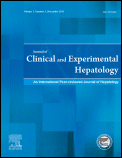
Journal of Clinical and Experimental Hepatology
Scope & Guideline
Innovating hepatology: where clinical practice meets scientific discovery.
Introduction
Aims and Scopes
- Clinical Research on Liver Diseases:
The journal emphasizes clinical studies that investigate the epidemiology, diagnosis, and management of liver diseases such as Hepatitis, Non-alcoholic Fatty Liver Disease (NAFLD), and Hepatocellular Carcinoma (HCC). - Transplantation Studies:
There is a strong focus on liver transplantation, including donor evaluation, transplantation techniques, surgical outcomes, and post-transplant complications. - Innovative Therapies and Biomarkers:
The journal includes research on emerging therapies, drug efficacy, and the identification of novel biomarkers for liver diseases, particularly in the context of personalized medicine. - Interventional Procedures:
Papers discussing various interventional procedures, including endoscopic and radiological techniques for managing liver diseases, are a core part of the journal’s scope. - Public Health and Epidemiology:
The journal addresses the public health implications of liver diseases, exploring epidemiological trends and health policies that affect liver health. - Basic and Translational Research:
It also covers experimental studies that provide insights into the pathophysiology of liver diseases, facilitating the translation of basic research findings into clinical applications.
Trending and Emerging
- Metabolic Dysfunction-Associated Fatty Liver Disease (MAFLD):
Recent publications indicate a growing focus on MAFLD, reflecting a shift from traditional NAFLD terminology and emphasizing the metabolic aspects of liver disease. - Advancements in Liver Transplantation Techniques:
There is an increasing number of studies exploring innovative techniques in liver transplantation, including living donor transplantation and the use of machine perfusion. - Artificial Intelligence and Machine Learning:
The application of AI and machine learning in diagnostic processes and treatment personalization is emerging as a significant trend, with several studies exploring its potential in hepatology. - Interventions in Hepatic Encephalopathy:
Research on new interventions for managing hepatic encephalopathy is trending, particularly studies examining dietary modifications and pharmacological approaches. - Public Health Initiatives and Screening Programs:
There is a notable increase in research focused on public health strategies, including screening and early intervention programs for high-risk populations, particularly for viral hepatitis. - Patient-Centric Outcomes and Quality of Life Assessments:
Studies investigating the impact of liver diseases on patients' quality of life and health-related outcomes are gaining prominence, reflecting a more holistic view of patient care.
Declining or Waning
- Traditional Pharmacological Therapies:
There has been a noticeable decline in papers focused solely on traditional pharmacological treatments for liver diseases, possibly due to the rise of novel therapies and personalized medicine approaches. - Single-Center Studies:
The prevalence of single-center studies appears to be waning as the journal increasingly emphasizes multicenter trials and large cohort studies that provide more generalizable data. - Basic Science without Clinical Application:
Research that does not connect basic science findings to clinical applications is becoming less common, indicating a shift towards studies that demonstrate direct relevance to patient care. - Outdated Diagnostic Techniques:
There seems to be a reduction in studies focusing on older diagnostic methods, as newer, more effective technologies gain traction in the field. - Secondary Liver Diseases:
Topics related to secondary liver diseases, such as those caused by less common infectious agents or rare genetic conditions, are becoming less frequent, likely overshadowed by more prevalent conditions.
Similar Journals
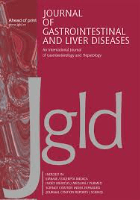
Journal of Gastrointestinal and Liver Diseases
Championing Comprehensive Understanding in GastroenterologyThe Journal of Gastrointestinal and Liver Diseases, published by MEDICAL UNIV PRESS in Romania, serves as a pivotal platform for the dissemination of significant research in the fields of gastroenterology and hepatology. Established in 2006, this journal has evolved over the years, currently holding a Q3 rank in Gastroenterology and a Q2 rank in Medicine (miscellaneous), reflecting its commitment to high-quality scholarship and impactful contributions to medical science.
With an ISSN of 1841-8724 and an E-ISSN of 1842-1121, the journal engages a diverse readership of researchers, clinicians, and students passionate about advancing knowledge in gastrointestinal and liver health. While it currently does not operate under an open access model, the journal remains a vital resource for those seeking to stay updated on the latest developments and emerging trends in the field. As it converges towards a broader impact, projected through its coverage until 2024, the Journal of Gastrointestinal and Liver Diseases continues to contribute to the academic landscape, encouraging innovation and comprehensive understanding in digestive health.

Clinical Gastroenterology and Hepatology
Unveiling New Horizons in Gastroenterology and HepatologyClinical Gastroenterology and Hepatology, published by Elsevier Science Inc, stands as a leading journal in the fields of gastroenterology and hepatology. With an ISSN of 1542-3565 and an E-ISSN of 1542-7714, this esteemed publication has earned its place in the top quartile (Q1) of both gastroenterology and hepatology categories as of 2023, ranking 6th out of 167 and 7th out of 82 respectively. The journal aims to disseminate innovative research, clinical studies, and case reports that advance the understanding and treatment of gastrointestinal and liver diseases. Targeted towards researchers, healthcare professionals, and students, it provides crucial insights into emerging therapies and medical advancements. Clinical Gastroenterology and Hepatology is not only a pivotal resource for contemporary gastroenterological research but also fosters collaboration and knowledge-sharing within the medical community. With a converging publication history from 2003 to the present, the journal continues to build on its solid foundation of scientific excellence and relevance.

Translational Gastroenterology and Hepatology
Connecting Research to Real-World Solutions in Hepatology.Translational Gastroenterology and Hepatology, published by AME Publishing Company, stands as a pivotal platform for advancing the understanding and treatment of gastrointestinal and liver diseases. With its focus on translational research, this journal aims to bridge the gap between laboratory discoveries and clinical applications, thus fostering improvements in patient care. Although specific metrics like H-Index and Scopus ranks are currently unavailable, the journal is committed to maintaining high standards of scholarly communication and excellence. As an open-access publication, it ensures that valuable findings are readily accessible to a global audience, promoting collaboration and innovation among researchers, clinicians, and healthcare professionals invested in gastroenterology and hepatology. The journal's dedication to disseminating groundbreaking research makes it an essential resource for those seeking to stay at the forefront of these ever-evolving fields.

Canadian Liver Journal
Empowering Knowledge for Liver Health.Canadian Liver Journal, published by University of Toronto Press Inc., offers a dedicated platform for the dissemination of cutting-edge research in the field of Hepatology. With an E-ISSN of 2561-4444, this journal plays a pivotal role in advancing knowledge related to liver diseases and therapies, currently ranked in the 3rd quartile (Q3) for the 2023 category in Hepatology—a reflection of its growing influence in the biomedical research community. The journal, which has been in circulation since 2018 and sets its sights on contributing valuable insights until 2024, aims to engage researchers, clinicians, and students alike by providing a rigorous peer-reviewed environment for sharing findings, case studies, and reviews pertinent to liver health. Through its commitment to excellence and scholarly impact, the Canadian Liver Journal serves as an essential resource for those dedicated to combating liver diseases and enhancing patient care.

World Journal of Hepatology
Exploring the complexities of liver diseases worldwide.World Journal of Hepatology is a premier academic journal dedicated to advancing the field of hepatology. Published by BAISHIDENG PUBLISHING GROUP INC, this journal serves as a crucial platform for disseminating innovative research findings and critical reviews from around the globe. With its ISSN 1948-5182 and E-ISSN 1948-5182, the journal has established a notable presence since its inception in 2009, covering a wide range of topics relevant to liver diseases, including but not limited to hepatitis, liver cancer, and metabolic liver disorders. Currently ranked 41/82 in the field of hepatology by Scopus, representing the 50th percentile, it has achieved a Q3 quartile ranking in the 2023 category, underscoring its growing influence in the medical community. With a commitment to open access for its readership, the World Journal of Hepatology enriches the global discourse on liver health and disease management, making it an essential resource for researchers, clinicians, and students alike.
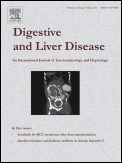
DIGESTIVE AND LIVER DISEASE
Unlocking the complexities of digestive and liver diseases.DIGESTIVE AND LIVER DISEASE is a prominent journal published by Elsevier Science Inc, dedicated to advancing the field of gastroenterology and hepatology. With an ISSN of 1590-8658 and an E-ISSN of 1878-3562, this journal has established itself as a significant resource within the academic community, especially considering its Q2 ranking in both gastroenterology and hepatology categories as of 2023. Spanning from 2000 to 2024, the journal presents a diverse array of peer-reviewed articles, clinical studies, and review papers that explore the latest advancements and research findings in digestive and liver diseases. The journal's robust impact, reflected in its Scopus rankings—40th out of 167 in gastroenterology and 28th out of 82 in hepatology—highlights its critical role in shaping practices and understanding in these vital areas of medicine. With open access options available, DIGESTIVE AND LIVER DISEASE aims to make high-quality research accessible to a wider audience, thereby encouraging collaboration and innovation. Researchers, healthcare professionals, and students alike will find valuable insights into the complex mechanisms, diagnostics, and therapeutic strategies pertinent to digestive and liver health.
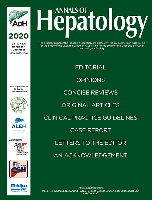
Annals of Hepatology
Diving deep into the world of hepatology and liver diseases.Annals of Hepatology is an esteemed open-access journal dedicated to the dynamic field of liver research and hepatology. Published by Elsevier España since 2002, this journal has established itself as a pivotal resource for researchers and clinicians alike, boasting a remarkable impact in the medical community with its 2023 rankings placing it in the Q2 quartile for Hepatology and Q1 quartile in Medicine (Miscellaneous). With an impressive Scopus rank of #20 out of 82 in the field of Hepatology and a notable 76th percentile standing, the journal is committed to disseminating high-quality, peer-reviewed articles that advance the understanding of liver diseases and their management. The editorial scope encompasses a broad range of topics, including liver pathology, therapeutic interventions, and public health implications related to hepatic disorders. Researchers, healthcare professionals, and students interested in the latest advancements in hepatology will find Annals of Hepatology an invaluable platform for sharing and accessing knowledge, with the convenience of open access enhancing global visibility and collaboration in this critical field of medicine.
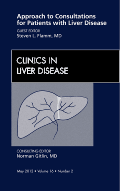
Clinics in Liver Disease
Unveiling the complexities of hepatology for better care.Clinics in Liver Disease is an esteemed peer-reviewed journal published by W B Saunders Co-Elsevier Inc, dedicated to advancing the field of hepatology. Established in 1997 and covering a broad range of topics within liver disease research, this journal serves as a vital resource for researchers, clinicians, and students engaged in the study of liver health and diseases. With a commendable impact factor placing it within the Q2 category in Hepatology and ranking #32 out of 82 in the Scopus classifications, it consistently disseminates high-quality research and clinical insights. The journal’s commitment to promoting understanding and management of liver diseases is reflected in its rigorous editorial standards and comprehensive review processes. Although not an open-access publication, Clinics in Liver Disease offers subscription options that ensure accessibility to up-to-date research and reviews critical for both academic and clinical success.
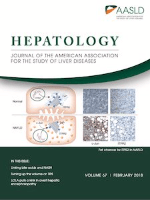
HEPATOLOGY
Transforming liver health with groundbreaking insights.HEPATOLOGY is a premier scholarly journal dedicated to advancing the field of liver research and clinical practice. Published by Lippincott Williams & Wilkins, this journal boasts an impressive impact factor and holds a prestigious position as one of the top-ranked publications in both Hepatology (Q1) and Medicine (miscellaneous, Q1) categories as of 2023. HEPATOLOGY, with its commitment to disseminating high-quality research since its inception in 1981, serves as an essential platform for researchers, clinicians, and students focusing on liver diseases, including hepatitis, cirrhosis, and liver cancer. The journal's editorial board comprises leading experts who guide the publication towards its objective of fostering innovation and collaboration in this critical area of health. Although it does not offer an open access model, HEPATOLOGY ensures that its comprehensive analyses, reviews, and groundbreaking studies are accessible to the global medical community. Join the discourse in hepatology and be a part of a transformative journey through this indispensable resource.

JHEP Reports
Fostering collaboration for groundbreaking health solutions.JHEP Reports, published by ELSEVIER, stands at the forefront of scholarly communication in the fields of Gastroenterology, Hepatology, Immunology and Allergy, and Internal Medicine. As an Open Access journal since 2019, it provides a platform for the dissemination of high-quality research findings, making vital information readily accessible to a global audience. With a commendable impact characterized by a Q1 category ranking across four medical disciplines in 2023, JHEP Reports demonstrates its significance and influence, reflected in its impressive Scopus ranks—#11 in Gastroenterology and #14 in Internal Medicine, amongst others. This esteemed journal not only plays a critical role in advancing knowledge but also fosters collaboration among researchers, practitioners, and students keen on exploring innovations and breakthroughs in health sciences. At RADARWEG 29, 1043 NX AMSTERDAM, NETHERLANDS, JHEP Reports is committed to bridging the gap between research and application, ushering in a new era of informed and effective healthcare solutions.